
Becoming an entrepreneur is exciting, but it’s also full of challenges. Success comes from more than just having a great idea—it requires persistence, focus, and smart decision-making. Zac Sandvig highlights five tips that can help aspiring entrepreneurs start strong.

Start Small and Test Early
One of the biggest mistakes new founders make is waiting for perfection before launching. The best way to learn is by putting a simple version of your idea out into the market. Early feedback shows you what works, what doesn’t, and how to adjust. A “minimum viable product” often tells you more than tons of planning ever could.
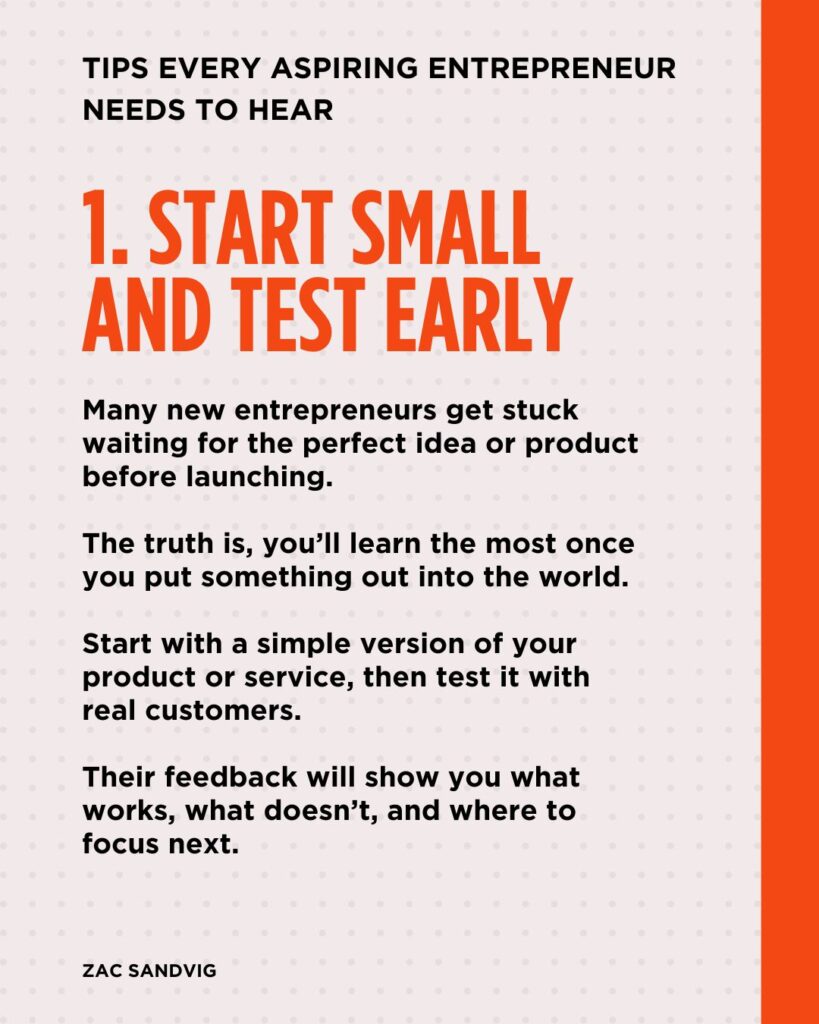
Solve a Real Problem
Every lasting business is built on solving a real problem. Before diving in, ask yourself whether people would pay for the solution you’re offering. A product or service that genuinely improves someone’s life has a much stronger chance of gaining traction than one built around novelty alone.
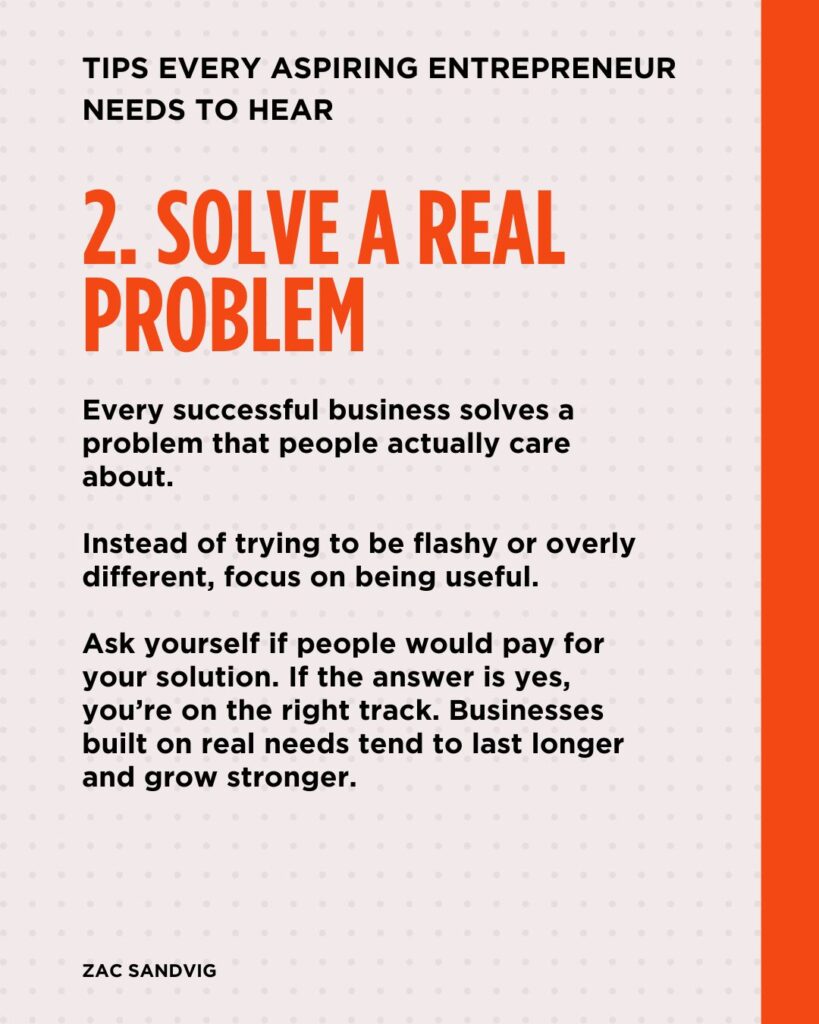
Manage Money Wisely
Cash flow is one of the top reasons startups fail. Keep costs low in the beginning and avoid unnecessary spending until your business proves itself. Set aside reserves for unexpected expenses, and when profits come in, reinvest them carefully into growth. Smart money management gives your venture room to breathe.
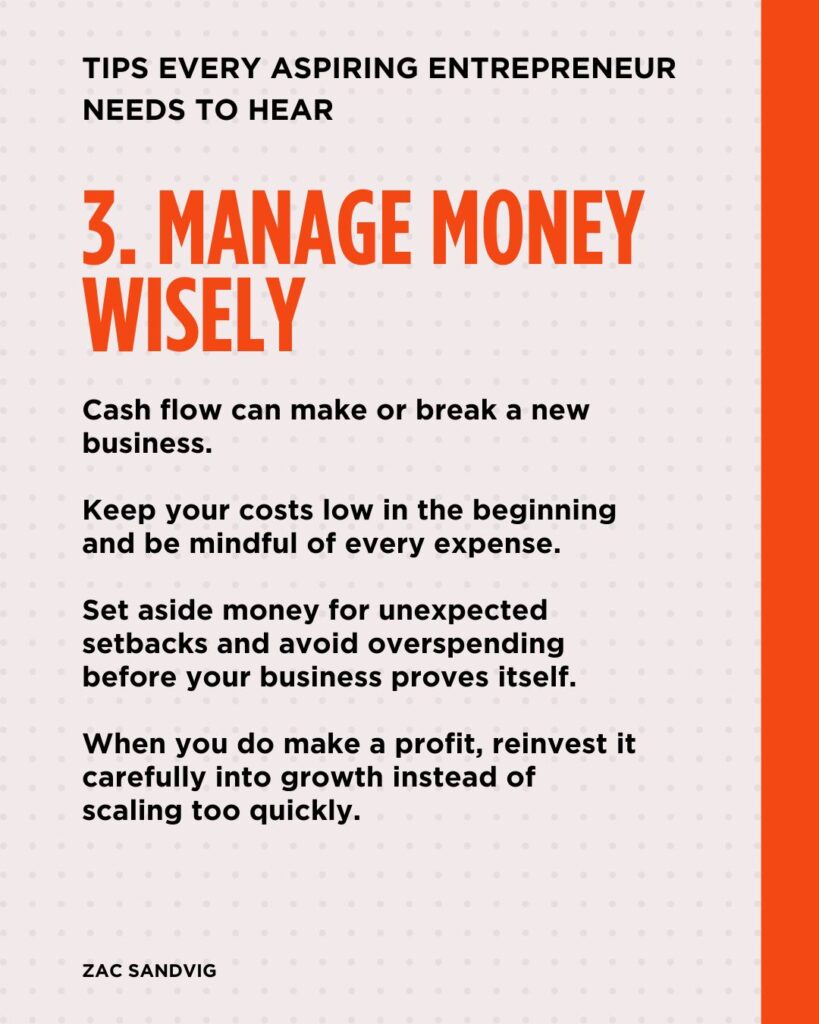
Build a Support Network
No one succeeds alone. Having mentors, peers, and advisors to lean on can make the path forward much clearer. Whether through local meetups or online groups, connecting with other entrepreneurs gives you access to advice, encouragement, and new opportunities. A strong network often becomes a founder’s most valuable asset.
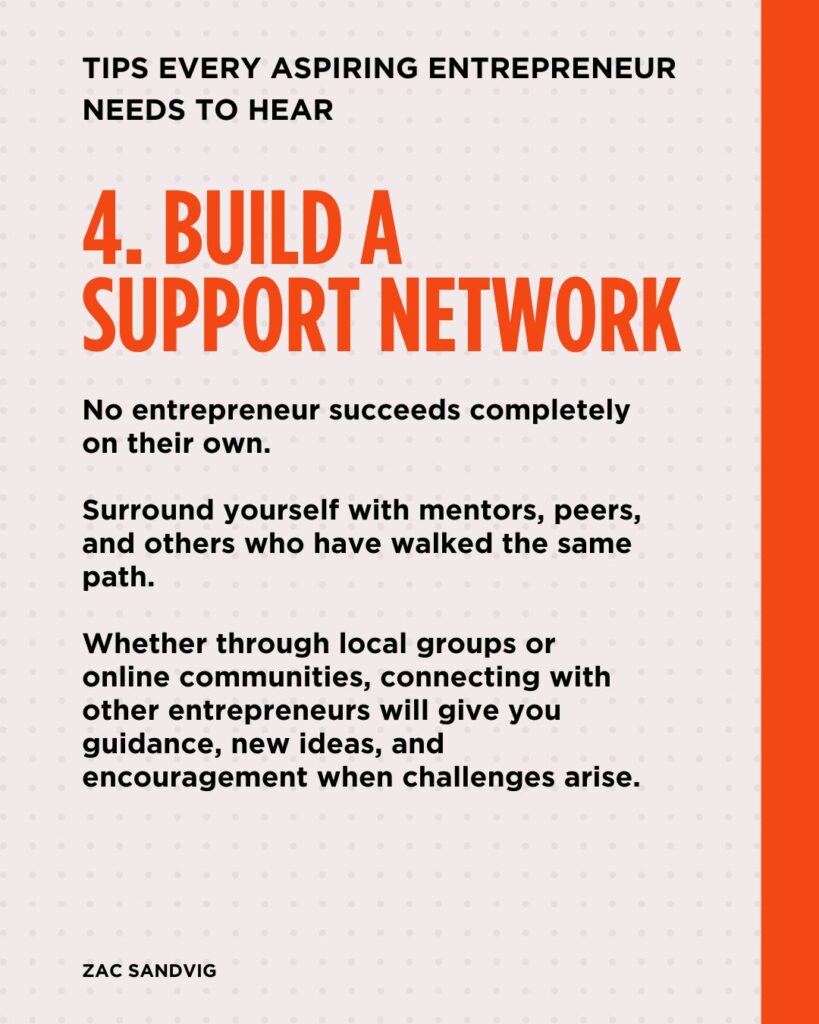
Stay Persistent, Not Stubborn
Setbacks are part of entrepreneurship. The difference between those who succeed and those who quit often comes down to persistence. But persistence doesn’t mean refusing to change course—it means staying committed to your bigger goal, even if you need to pivot your approach. Flexibility combined with determination is what keeps entrepreneurs moving forward.
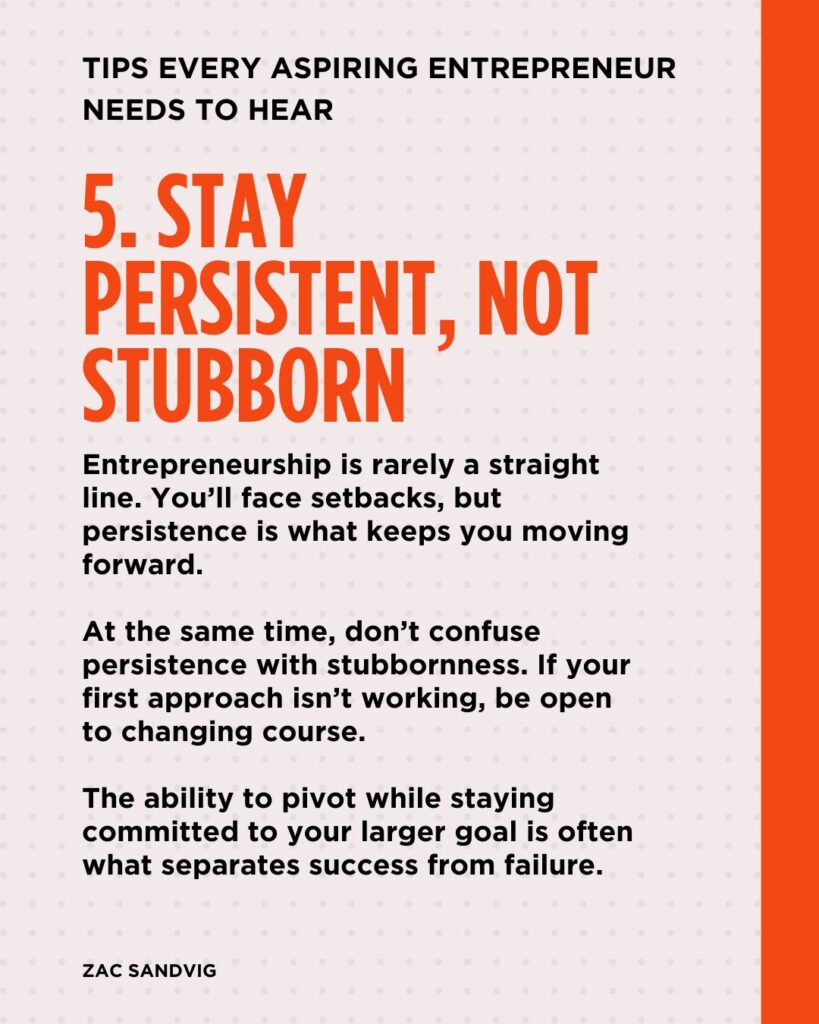
Final Thoughts
Starting a business is never simple, but it doesn’t need to feel overwhelming either. With a willingness to test ideas, solve meaningful problems, manage money carefully, and lean on the right support, you can put yourself in a strong position to succeed. As Zac Sandvig emphasizes, entrepreneurship is about progress, not perfection—what matters most is taking the first step.

Leave a Reply